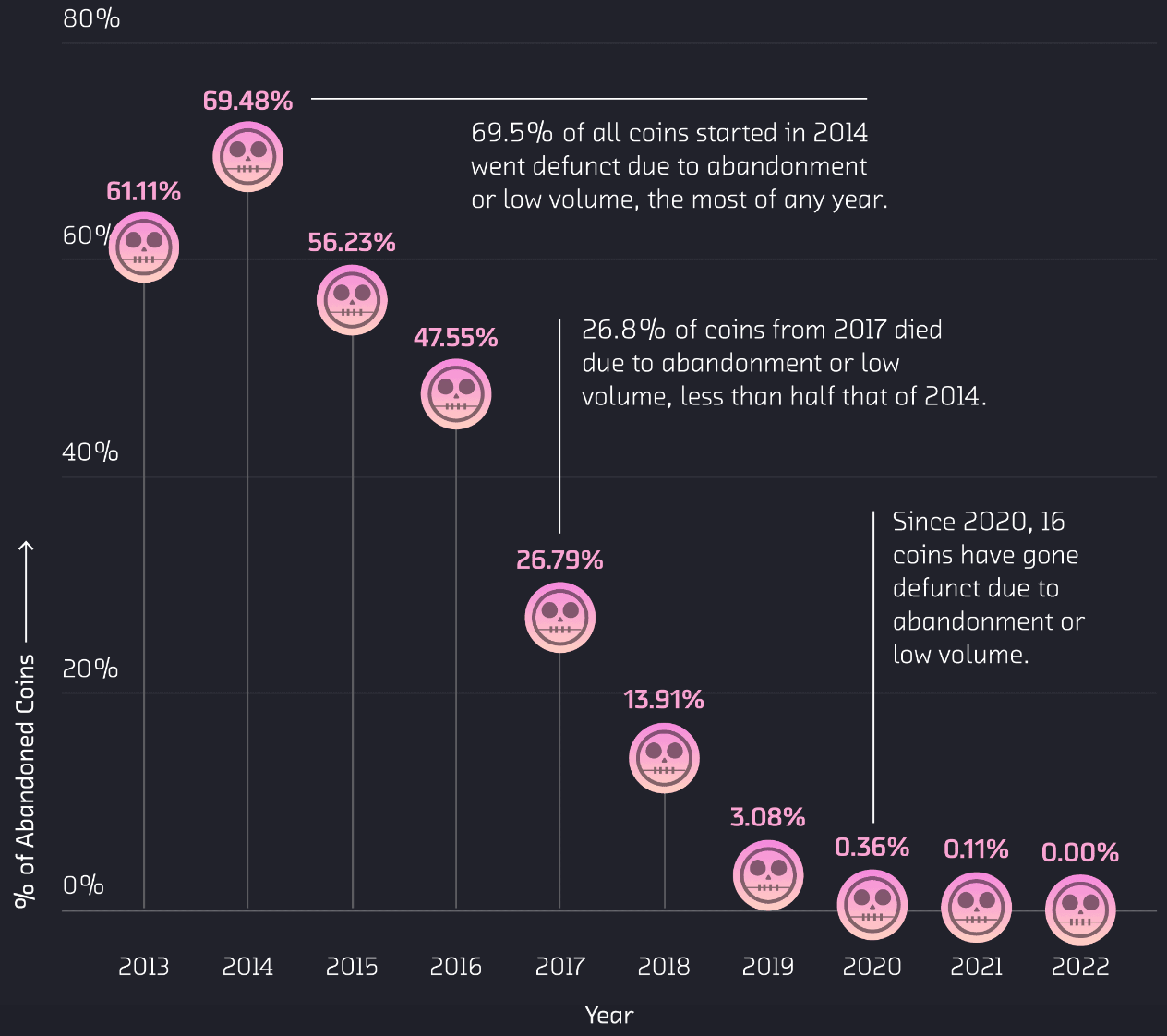
A recent study shows that the most common reason for cryptocurrencies dying off is the lack of trading volume with a rate of 66% while being a scam and hosting unsuccessful ICOs are the second and third most common reasons for failure.
The study examines the lifetime of coins by looking into the now-dead coins launched since the year 2013. The data pool includes 2,383 now-dead coins. A total of 1,584 coins died because of abandonment or low trading volumes in the last ten years, corresponding to 66.4% of the whole. Another 528, or 22.1%, turned out to be scams, while 238 (9.9%) failed after hosting unsuccessful ICOs.
2017, 2014, and 2018 launched the most now-dead coins
According to the data, 704 now-dead coins were launched in 2017. Among all projects that launched in that year, 210 failed because they were scams, nine failed due to being without purpose, 155 disappeared after failed ICOs, and 330 were abandoned or failed to maintain substantial volume.
The year 2014 follows 2017 as a close second with regards to launching now-dead coins. A total of 607 coins were launched in 2014, and 42 of them died because they were scams, five died for being a “joke,” and nine died after failed ICOs. The remaining 551, which corresponds to 91% of the coins that were launched in 2014, died from abandonment or not having enough volume.
By having a total of 409 now-dead coins, 2018 is placed third on the list. Around 50% of these coins (206) disappeared because of abandonment or low volume. Another 143 turned out to be scams, 54 failed after unsuccessful ICOs, and six were classified as “jokes.”
Abandonment or low volume is fading
The biggest reason for coin failures, abandonment or lack of substantial trading volume, seems like it is becoming less of an issue with each year that passes by.
The chart below calculates the proportion of coins started each year since 2013 that died due to low trading volumes or abandonment.

The coins launched in the year 2014 saw a peak as almost 70% of them died due to abandonment or low volume. However, the percentages have been declining steadily since 2014. The numbers indicate that only 16 coins were killed due to low trading volume or abandonment between 2020 and 2022.







